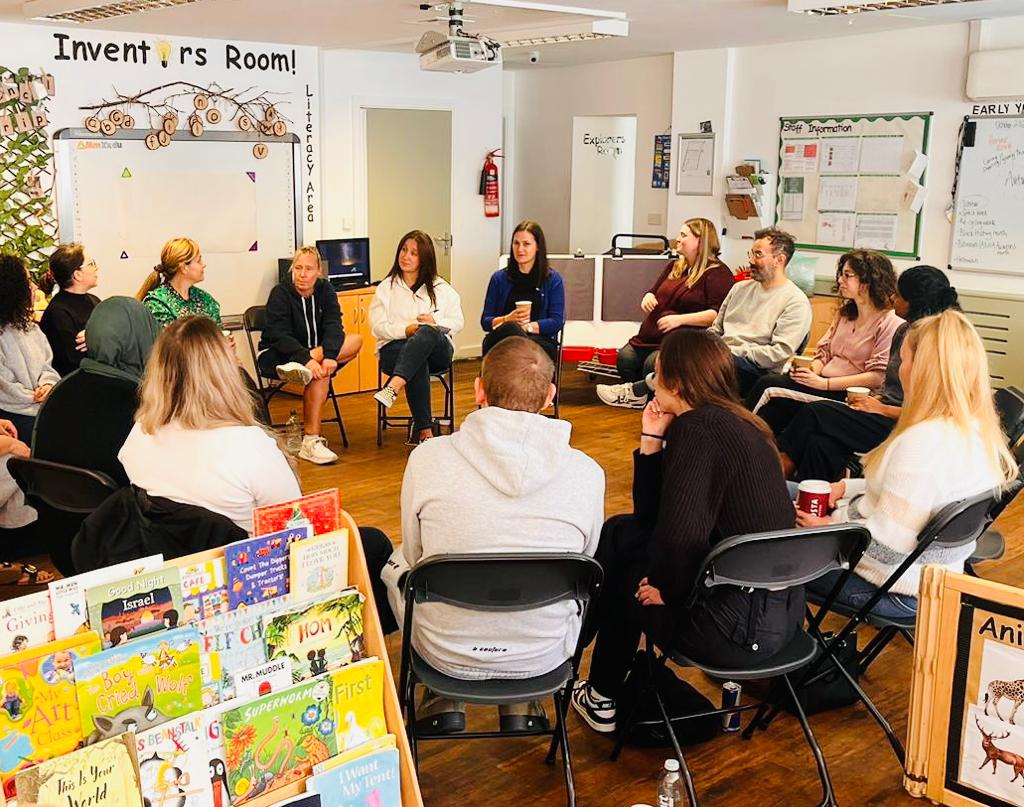Every parent’s wish is for their child to be happy and healthy.
Recently we’ve been lucky enough to host an open discussion with our nursery parents and our professional colleagues, discussing everything from biting behaviours to exploring emotions. We know that different stages and phases of development can affect us in different ways, knowing how to manage this can be vital to a peaceful environment be it home, nursery or big school!

Discussing a range of challenging behaviours encouraged us to be reflective on our own practice as well as hearing the parent point of view, the reflective examples indicated how these behaviours can make us feel anxious, worried, or unskilled particularly when these behaviours are in the glare of public! Many reasons can provoke behavioural outbursts, just feeling tired, hungry, feeling upset, limited language & communication, coping with change, or just simply wanting your attention are just a few…for children it can sometimes be the only way that they can express themselves.
Our training and experience tell us that children struggle to process their emotions in their early years and finding the ways to self-regulate, as adults we must acknowledge that it is okay to have feelings that may result in behaviours that are challenging to deal with by supporting children through the processes. We can help by recognising and naming the emotions by name and making a tranquil space available for children to go to and calm from the turbulence they’ve just experienced or are experiencing.
The natural instincts of adults is to wonder ‘what’s wrong’ when children begin to display tricky or behaviours that are outside of what is assumed as the ‘norm’ and therefore, we begin pigeon-holing children as autistic or suffering from ADHD. Attention Deficit Hyperactivity Disorder known as ADHD is assessed in children in later than their early years usually between the ages of 6-7yrs. We touched on this topic during our discussion briefly and by the end of it the behaviours we talked about were just typical early behaviours which are seen in children between the ages of 0-5yrs. The types of behaviours that are characteristically linked with ADHD in young children can be the difficulty concentrating (keeping focused) – flitting attention, trouble sitting still, random bursts of emotions/tantrums, difficulty with social play skills…
Haringey SEND (Special Educational Need & Disabilities) Support Services work closely with the families to provide support to improve their educational and well-being outcomes so that each child meets their potential. The ser-vices offer a free 40-minute consultation with an education psychologist, the consultations are for parents who have concerns about their child’s development, learning, emotional well-being, or behaviour. To book a free con-sultation you can book via this email familyadmin@markfield.org.uk
For more information about Haringey’s SEND services Educational Psychology Service (EPS) | Haringey Council
Discussions and debates about behaviour will be a continuum, we are glad to be able to support children by setting some positive and sound foundations for them at MTO Nursery, so that no matter what the potential is for our bundles of joy the fundamentals have been set to achieve them!!!
It is important to remember that our behaviour is a reflection of the world around us! With this in mind we will continue to aim for children: To feel happy and secure at Nursery, to feel good about themselves, to respect each other and their surroundings, to develop independence and an enquiring mind…